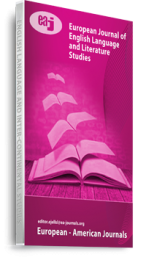In the second half of the 20th century, the role of linguistics in analyzing literary texts went beyond the mere examination of linguistic elements and features of the text and embraced the effects of mental processes in the formation of the literary texts. One of the approaches that mainly deals with these new concerns is Cognitive Poetics. This approach, considered as a new way of thinking about literature and reading literary texts, involves the application of Cognitive Science, particularly Cognitive Linguistics and Cognitive Psychology to literary texts. This article, through taking advantage of two fundamental and interrelated mechanisms in Cognitive Poetics, namely Image Schemas and Mental Spaces, does its best to read Beckett’s Watt (1953). According to Fauconnier & Turner (2004), the interaction of these two mechanisms provides the means for the movement of mind in its conventional way which historically has formed the logical and rational way of thinking. It can be deduced from this hypothesis that any sort of illogical and irrational thinking is the consequence of a situation in which the conventional interaction of image schemas and mental spaces are disrupted. Based on the assumption that Watt is a quest through human mind, this paper intends to find out what happens to the various forms of interaction between image schemas and mental spaces in the mind of the Protagonist Watt that his speech becomes more and more disordered until it finally does not make any sense at all.
Keywords: Beckett, Cognitive Poetics, Image Schemas, Mental Spaces, Watt

